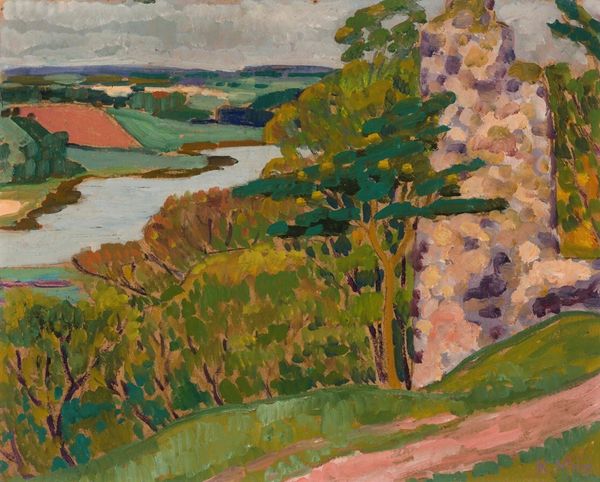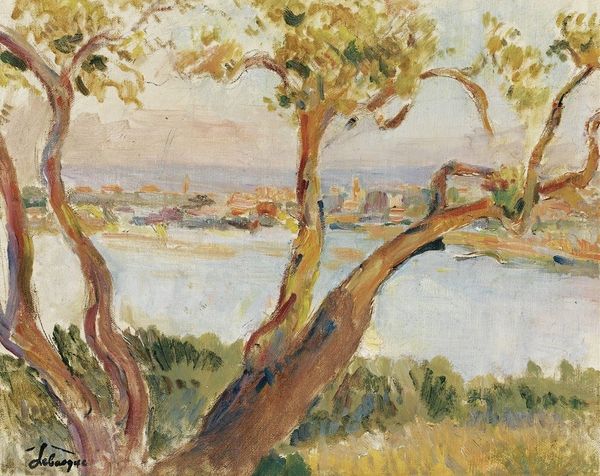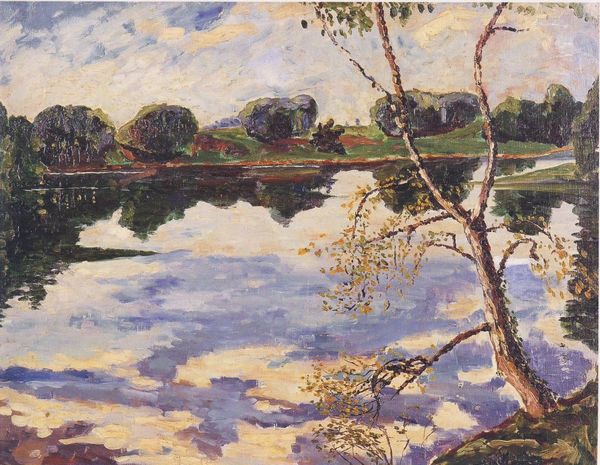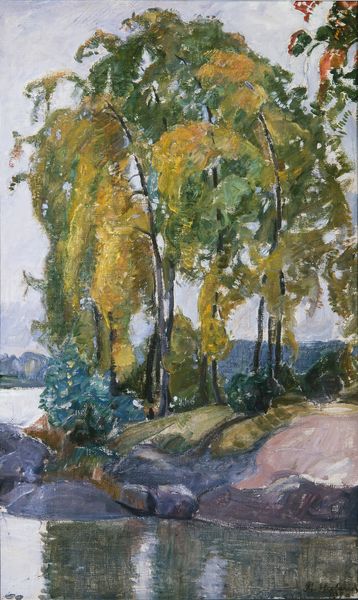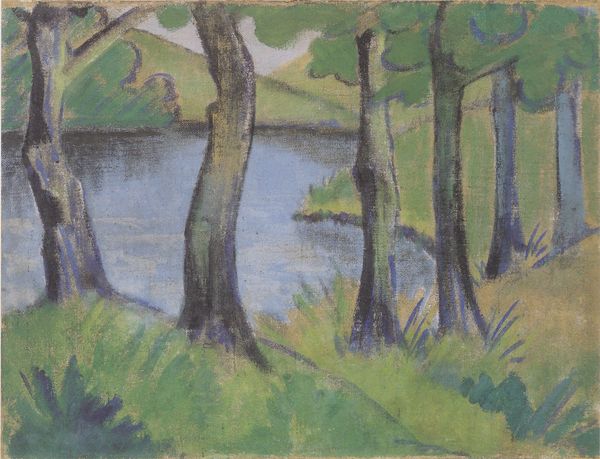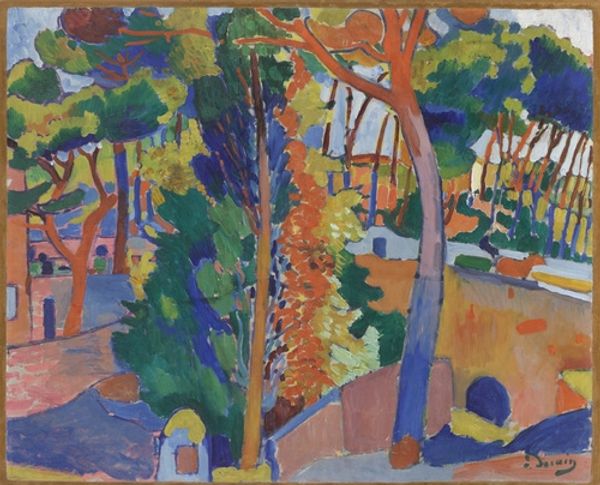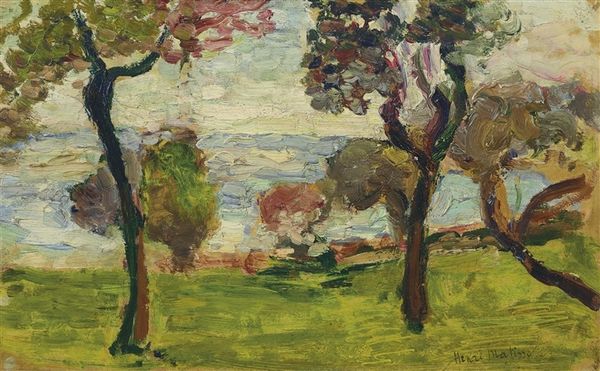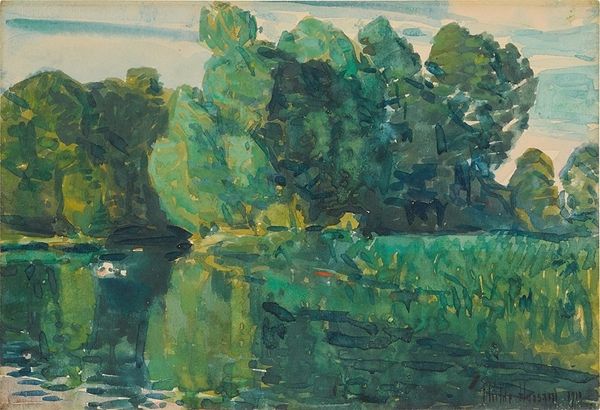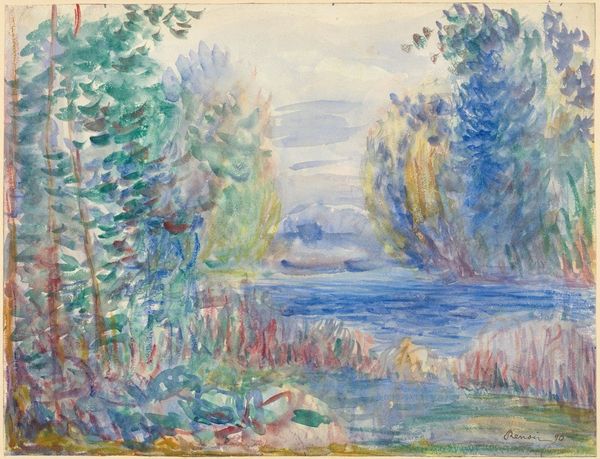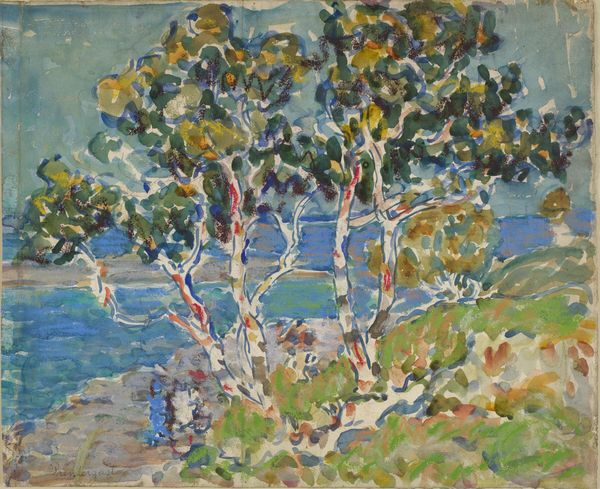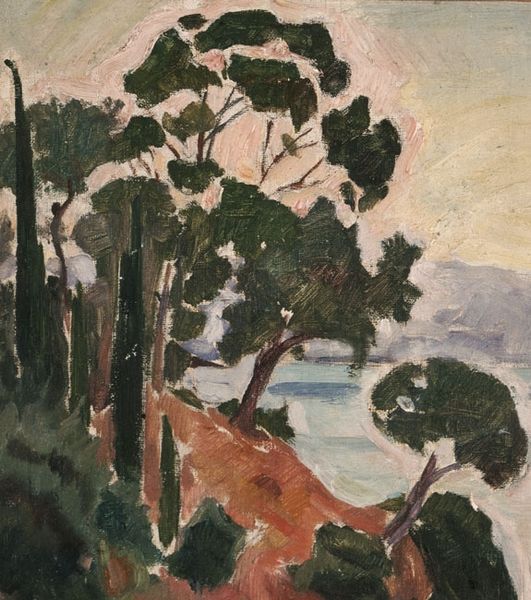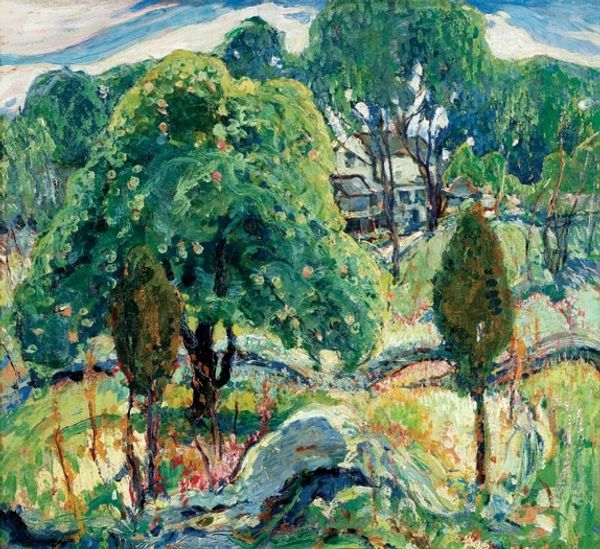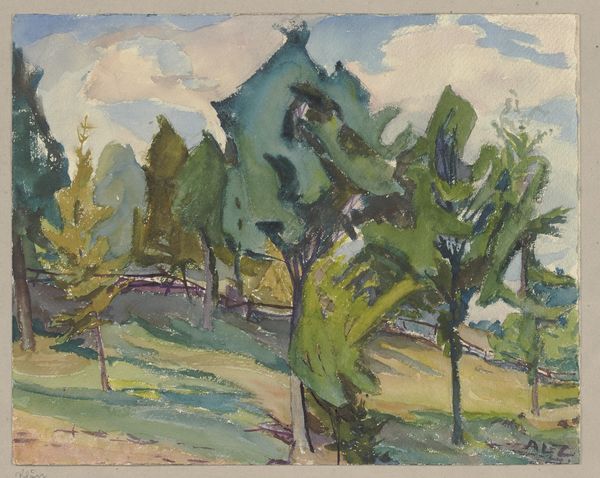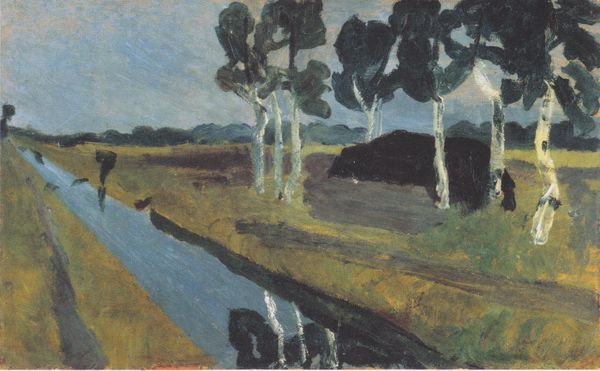
painting, plein-air, oil-paint
#
tree
#
fauvism
#
painting
#
plein-air
#
oil-paint
#
landscape
#
oil painting
#
natural-landscape
Copyright: Public domain US
Editor: We're looking at "The Seine at Chatou" painted by André Derain in 1906, rendered with oil paints. It feels almost aggressively cheerful, with these intense greens and blues. What’s striking to you about this painting? Curator: I'm immediately drawn to the historical context. Consider the Fauvist movement of the time. These artists weren’t just painting landscapes; they were actively rejecting academic traditions and challenging the very notion of representation. Think about the salons, the established art world that dictated what was acceptable. How do you think a painting like this, with its unapologetic use of color, would have been received by those institutions? Editor: I imagine it caused quite a stir! The colors are so divorced from reality, almost rebellious. Curator: Precisely. It's also worth thinking about Derain’s relationship with other artists, like Matisse. This piece screams the influence of social circles pushing new aesthetic values, doesn't it? The intensity and expressive freedom aren't just aesthetic choices. It's a statement. But did Fauvism have long-lasting effects? Editor: I suppose it paved the way for even more abstract movements? It seems like such a strong rejection of what came before, so someone was bound to take it further! Curator: Absolutely. Fauvism challenged the authority of artistic conventions, pushing against the status quo to redefine art's purpose within society. The museum acquires this, understanding this act, how should they position this artwork in its Fauvism collections? Editor: So, beyond the visual experience, understanding the 'why' and 'who' behind a painting enriches our perspective. Thanks! Curator: Indeed, a painting is more than pigments on canvas; it's a cultural artifact that reflects the social and intellectual currents of its time.
Comments
No comments
Be the first to comment and join the conversation on the ultimate creative platform.
